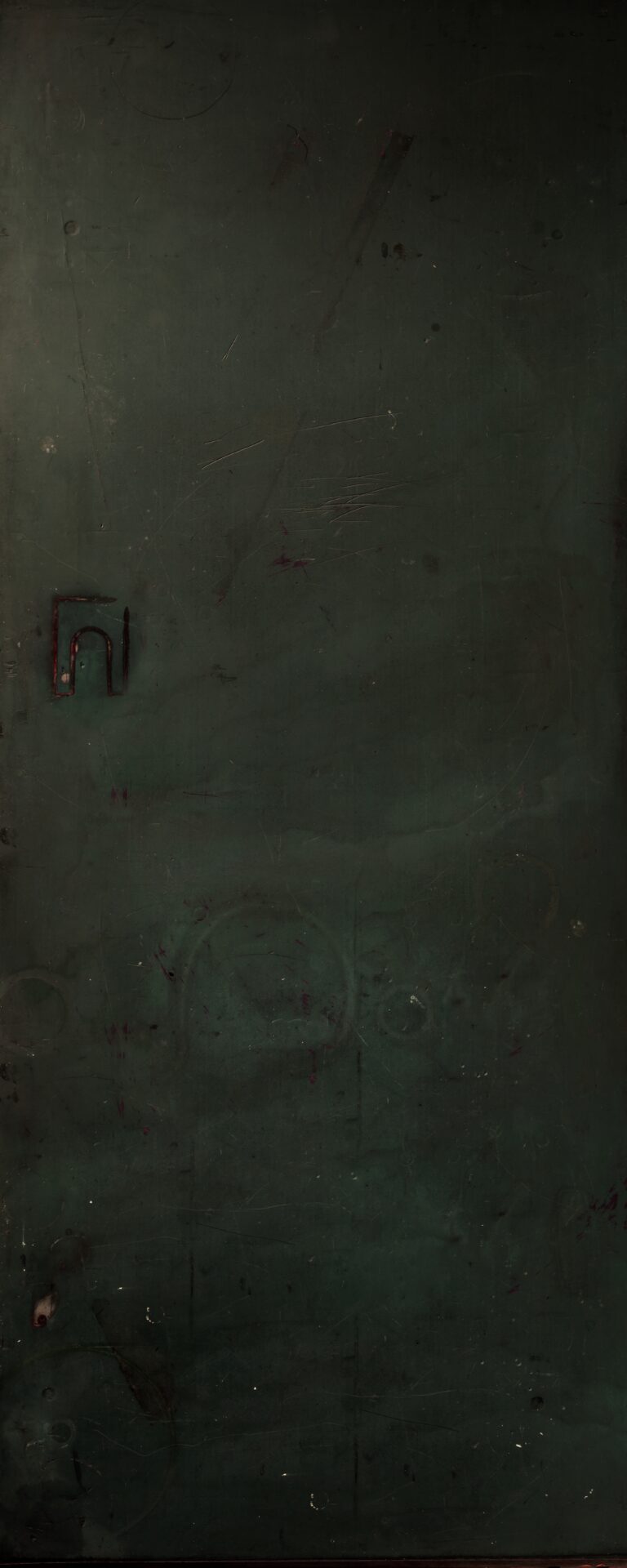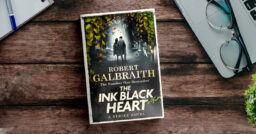Health and Wellbeing in Strike
Robin and Strike both face profound health challenges over their years together. For Robin, dealing with the attack which derailed her university career, and the violence she faces while working for Strike, requires extraordinary effort and hard-won emotional honesty. For Strike, realising he has to make changes to accommodate his disability takes longer. In the end though, each partner is challenged and helped by the other to deal with the after-effects of very different moments of violence and trauma which have shaped the course of their lives.
‘He tried to strangle me; I went limp and played dead and he ran for it. He’d attacked two other girls wearing the mask and neither of them could tell the police anything about him. My evidence got him put away.’
Career of Evil, Robert Galbraith
The attack which ended Robin’s university career was brutal, violent and life changing. She dropped out of university, and for a year was agoraphobic and clinically depressed, barely leaving her childhood bedroom in Masham, even to eat. As she recovered, and expressed a tentative interest in police work, those nearest and dearest to her took her interest as a sign of continuing sickness, an inability to throw off what had happened to her, rather than an attempt to pursue long-held ambitions, brutally interrupted.
Strike knows nothing of this when Robin first arrives at Strike’s Detective Agency for a week of temp work, though he quickly realises his new assistant has a talent for the work. Robin’s long repressed desire to make a career of investigative work is awakened, but she discovers that with her new ambition comes new challenges. Her fiancé, and later husband, Matthew, is hostile to her job and her boss from the start and the high-profile cases also lead to physical dangers.
A lot of things about Robin were explained now. The long allegiance to Matthew, for instance: the safe boy from home.
Career of Evil, Robert Galbraith
It is only when they are dealing with the case of the Shacklewell Ripper (Career of Evil), and a fight causes the temporary end of her engagement to Matthew that Strike learns about the attack which ended Robin’s university degree. It explains, for him, certain things about Robin he didn’t understand before. He discovers her advanced driving skills and self-defence skills come from the period she was dealing with the aftermath of the attack. What she doesn’t say, but which Strike suspects, is that her relationship with Matthew, her safe boyfriend from home, might be a result of the attack too.
‘…it’d be a bloody miracle if you hadn’t suffered any after-effects from what happened last year.’
Lethal White, Robert Galbraith
After Robin manages to fight off the Shacklewell Ripper (Career of Evil), she hopes that her adrenalin-fuelled bravery will carry her safely back to normality, without having to pass through the dark mire where she had lived so long after the rape. After the conclusion of the case and her dramatic rupture and reunion with Strike however, it is clear something is wrong.
Robin is driven into therapy by sharp-edged fragments of recollection that are unlike normal memories and have the power to drag her suddenly out of her body and plunge her back into the past. While she finds the CBT techniques she learns useful, she finds that therapy wrings her out and her therapist is just one more person challenging her about her choices as she struggles with concerned parents, a demanding job and an unhappy marriage.
Strike must never know about this. He would send her home, tell her she wasn’t fit to do the job. Nor must she tell Matthew, who treated these episodes as shameful, inevitable consequences of her stupidity in continuing surveillance work.
Lethal White, Robert Galbraith
Robin attempts to conceal her battles both from Matthew, who has already tried to sabotage her career as a detective working alongside Strike, and from her employer. She is convinced that her partner will fire her if he learns about her panic attacks, but losing her temper, screaming at Geraint Winn while in the car with Strike, means he learns the truth anyway (Lethal White). Strike also learns in the minutes which follow her outburst that she is not, as he feared, pregnant and that her disastrous marriage to Matthew is over.
The end of her marriage means Robin no longer has to walk on eggshells at home, but Strike is firm about telling her she needs to look after her mental health, regularly doing the CBT exercises, and being honest with him. Strike tells her that pretending she’s OK when she isn’t, is not strength, but Robin disagrees saying sometimes slapping on a brave face and walking out into the world before you are ready is necessary. As the case reaches its conclusion though, they have come to a careful compromise – Strike only asks how her exercises are going once a week, and she does them diligently.
‘Well,’ said Prudence, ‘let me repay the compliment. You’re clearly very good at your job, too.’
The Running Grave, Robert Galbraith
After the end of her marriage Robin’s confidence grows, so by the time the agency begins investigating the Universal Humanitarian Church, she is ready to take on a dangerous and vital role in the investigation – joining the church undercover (The Running Grave). Strike and his half-sister Prudence both do what they can to prepare her – Strike by grilling her on her cover story and Prudence by lending her clothes, and books about the mind control techniques she is likely to face. The terrible weeks at UHC put an enormous strain on Robin, but she emerges with vital evidence, and a renewed steeliness. She feels agitated, disorientated and overwhelmed after her escape, but when she needs to have a challenging and frank conversation with Prudence as the investigation reaches a key stage, she is more than ready for the task.
‘You talk about honesty, but you’re not fucking honest, not with me, not with yourself! You know why I’m saying this: I don’t want to lose you. Happy now?’
The Ink Black Heart, Robert Galbraith
After the end of her marriage Robin also deals with Strike more forcefully, first calling him out for his bad behaviour at her flatmate’s dinner party during the Bamborough investigation (Troubled Blood), then making clear that he has health issues of his own which are impacting the company as they race towards the conclusion of the investigation into the murder of Edie Ledwell (The Ink Black Heart).
And, though Strike has avoided listening to his body for a long time, he is forced to listen to her.
He was supposed to examine the skin surface for irritation every day. Now he saw that the scar tissue was inflamed and over-warm.
The Cuckoo’s Calling, Robert Galbraith
When Strike lost part of his leg during an IED attack in Afghanistan, his life changed dramatically. Charlotte Campbell re-entered his life, and unwilling to work a desk job in the army, he set up his detective agency. Eighteen months of hard struggle follow before he splits with Charlotte, meets Robin Ellacott and begins the case that will make the agency’s reputation, the investigation into the death of supermodel Lula Landry (The Cuckoo’s Calling). The case is excellent for the agency but does Strike damage. His prosthesis becomes uncomfortable after he spends too much time standing and walking, and a fall down the stairs of Lady Bristow’s flat leaves him sweating with pain and vulnerable when Lula Landry’s killer arrives at the office.
Pain and fear were making him angry; fear that he would have to give up the prothesis and resort to crutches again, his trouser leg pinned up, staring eyes, pity.
The Silkworm, Robert Galbraith
Strike is told by a consultant that the fall has done additional, though probably reparable damage to the medial ligaments in the knee joint of his amputated leg, and he must rest. But Strike decides he cannot afford rest. Eight months after the end of the Landry case, as the investigation into the fate of missing writer Owen Quine begins (The Silkworm), he is suffering as a result. When the time comes for him to interview Daniel Chard in Devon, Strike cannot wear his prosthesis and is forced to use his crutches. Pain makes him angry and irritable, as does having to descend the metal stairs from his flat on his bottom, like a small child.
He knew he should have been doing his bloody physio exercises, that he ought to have kept to the no chips rule, that in an ideal world he’d have taken the day off today, and rested up, the prosthesis off, an ice pack on his stump. On he limped, refusing to listen to the body pleading with him to stop
Lethal White, Robert Galbraith
As it grows, Strike struggles to keep up with the demands of the agency, and while following CORE activists Jimmy Knight and his girlfriend, he falls and tears a hamstring, meaning he can’t even get to his feet without help. With Robin away, he calls Lorelei and ends up recovering in her flat which leaves her with a different expectation of where their relationship is going. His attitude to his leg nevertheless continues to be of irritation and avoidance.
As the investigation into the Chiswell family becomes a murder case, Strike begins to make small changes, ordering one bacon roll rather than two, and he allows Sam and Robin to do most of the digging on their moonlight excursion into the grounds of Chiswell’s home in the country. During the investigation into Margot Bamborough’s disappearance (Troubled Blood), he continues a pattern of denial and irritation however, not telling Robin his stump is agony after slipping on the Falmouth ferry, for example, though she often suspects he is in pain.
At least once a week, he acknowledged that he ought to give up cigarettes but continued to get through a pack a day; he bought bags of salad then threw them out without having opened them. As his stump continued to jerk, he saw it as a mute appeal: something had to change.
The Ink Black Heart, Robert Galbraith
By the time the agency is dealing with the investigation into Edie Ledwell, Strike is pushing his limits again. Some of the extra work the agency is facing comes as a result of his ex-fiancé, Charlotte’s divorce and so, guilty about the pressure he is placing on his subcontractors, he covers more hours than he should. He worries he is developing choke syndrome, which could lead to the skin ulcerating and breaking down, but convinced he cannot slow down, he avoids making an appointment with his specialist. Another fall, this time over the bag strap of a Finnish tourist in a pub, results in another hamstring tear which confines him to the flat. At least Pat shows him some sympathy this time, and her usual practical helpfulness is appreciated, as are the texts from his nephew Jack, asking how his leg is doing. Strike reports it hasn’t grown back.
Realising he can’t go on as he is, he asks Robin how she avoids gaining weight doing what they do but calls her healthy snacks squirrel food and is disappointed to learn there isn’t a magic pill he can take.
Strike said nothing, because he was enduring the always-humiliating experience of facing his own hypocrisy and delusion. If it came to a knife fight, he was less than useless.
The Ink Black Heart, Robert Galbraith
A confrontation with Madeline, his jewellery designer girlfriend who has been subtly tormented by Charlotte about their relationship, results in another fall and this time he realises he needs medical treatment, though what he wants is not sensible advice, but stronger pain killers which will allow him to keep working. He is shocked by the doctor’s pronouncement he needs to keep the weight off his stump for four to six weeks and when Robin next sees him, he’s grey with pain. As the investigation reaches its dramatic conclusion, Robin reads Strike the riot act. He needs to take care of himself, or he will be a liability at his own agency. Finally Strike realises a change has to be made.
The following morning, Strike’s bathroom scales informed him that he was now a mere eight pounds off his target weight. This boost to his morale enabled him to resist the temptation of stopping for a doughnut at the service station en route to HMP Bedford.
The Running Grave, Robert Galbraith
When investigations into the Universal Humanitarian Church begin, Strike has already managed to lose three stone, moved from fags to using a vape and is doing the exercises recommended by his physio. It isn’t easy though – his fridge might be full of health food, but the idea of more fish or grilled chicken depresses him and he occasionally succumbs to the temptation of a pub lunch or Chinese Food.
As the investigation ends however, Strike has gone through an important change. He has begun to be honest about himself, and his relationships and understood, at least, denial is no longer a way forward.
Happiness is a choice that requires an effort at times, and it was well past time for him to make the effort.
The Running Grave, Robert Galbraith




